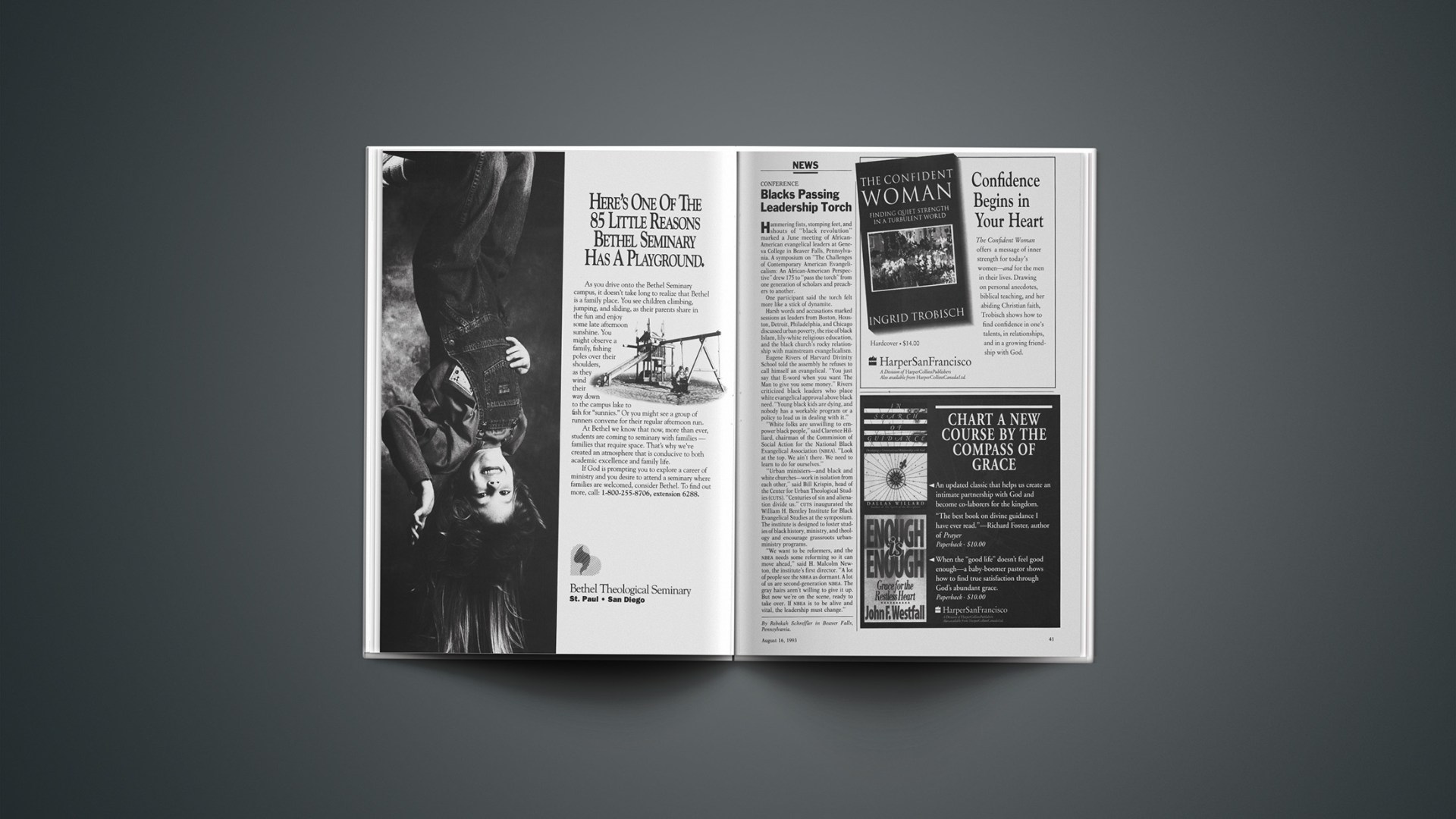Hammering fists, stomping feet, and shouts of “black revolution” marked a June meeting of African-American evangelical leaders at Geneva College in Beaver Falls, Pennsylvania. A symposium on “The Challenges of Contemporary American Evangelicalism: An African-American Perspective” drew 175 to “pass the torch” from one generation of scholars and preachers to another.
One participant said the torch felt more like a stick of dynamite.
Harsh words and accusations marked sessions as leaders from Boston, Houston, Detroit, Philadelphia, and Chicago discussed urban poverty, the rise of black Islam, lily-white religious education, and the black church’s rocky relationship with mainstream evangelicalism.
Eugene Rivers of Harvard Divinity School told the assembly he refuses to call himself an evangelical. “You just say that E-word when you want The Man to give you some money.” Rivers criticized black leaders who place white evangelical approval above black need. “Young black kids are dying, and nobody has a workable program or a policy to lead us in dealing with it.”
“White folks are unwilling to empower black people,” said Clarence Hilliard, chairman of the Commission of Social Action for the National Black Evangelical Association (NBEA). “Look at the top. We ain’t there. We need to learn to do for ourselves.”
“Urban ministers—and black and white churches—work in isolation from each other,” said Bill Krispin, head of the Center for Urban Theological Studies (CUTS). “Centuries of sin and alienation divide us.” CUTS inaugurated the William H. Bentley Institute for Black Evangelical Studies at the symposium. The institute is designed to foster studies of black history, ministry, and theology and encourage grassroots urbanministry programs.
“We want to be reformers, and the NBEA needs some reforming so it can move ahead,” said H. Malcolm Newton, the institute’s first director. “A lot of people see the NBEA as dormant. A lot of us are second-generation NBEA. The gray hairs aren’t willing to give it up. But now we’re on the scene, ready to take over. If NBEA is to be alive and vital, the leadership must change.”
By Rebekah Schreffler in Beaver Falls, Pennsy lvania.










